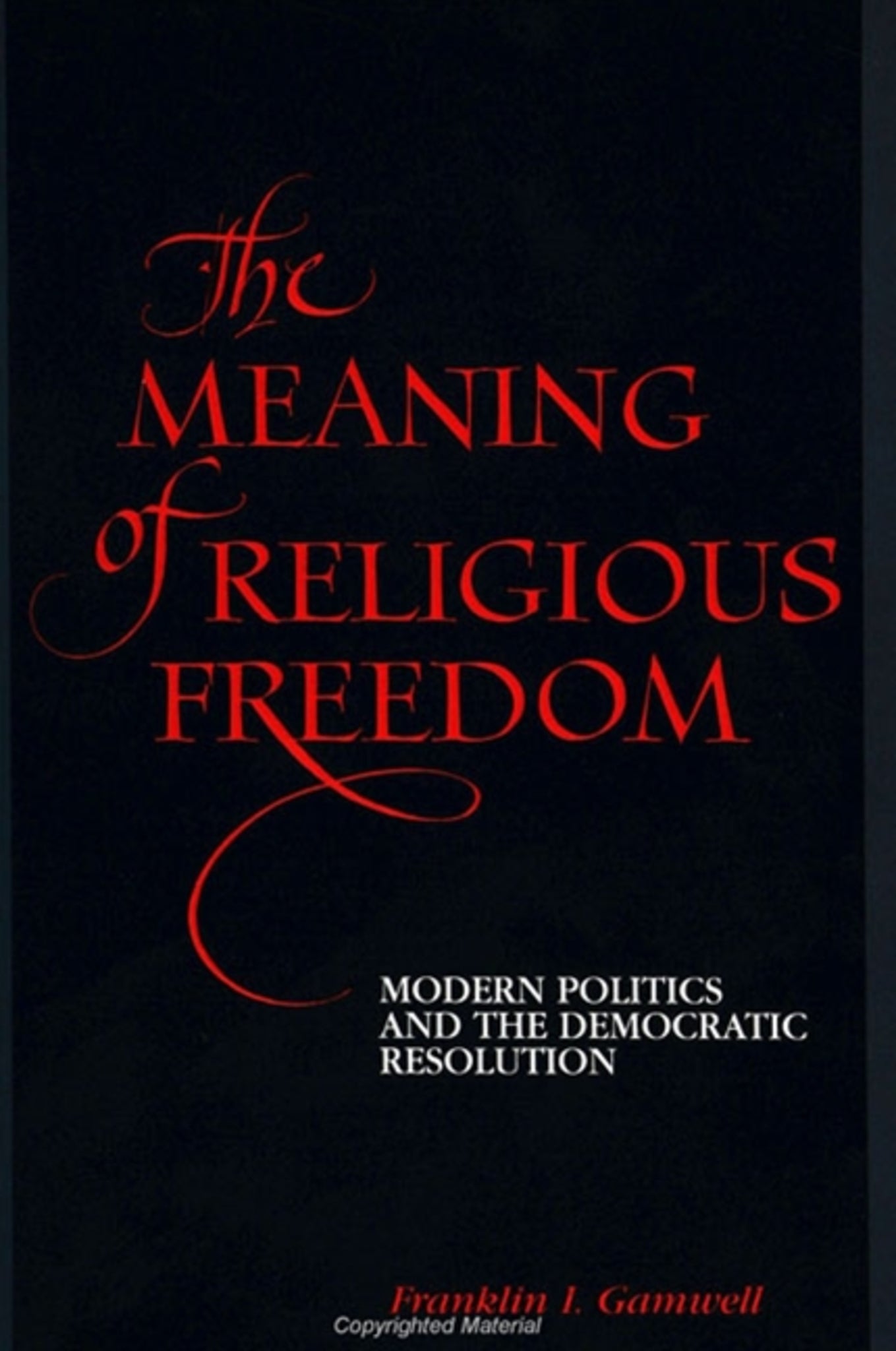We're sorry. An error has occurred
Please cancel or retry.
The Meaning of Religious Freedom

Some error occured while loading the Quick View. Please close the Quick View and try reloading the page.
Couldn't load pickup availability
- Format:
-
03 February 1995

The most thorough philosophical analysis available of the principle of religious freedom. It draws on the thought of philosophers and political theorists (Rawls, Habermas, Murray, Rorty, Greenawalt, and Mead) rather than on the framers of the Constitution and the Bill of Rights
The endorsement of religious freedom in the first amendment to the Constitution of the United States represents a modern revolution in the relation between politics and religion. In American politics there has been continual disagreement about the meaning of this constitutional principle, and widely-held views of religious freedom include much philosophical confusion. This book shows how a plurality of religious convictions can be politically united only by a free debate among different religious convictions.
The author demonstrates that religious freedom is a coherent political principle, and that this principle is the defining democratic commitment because all other political principles should be subject to assessment by the same free debate characterizing religious freedom. This book identifies the meaning of an authentically democratic constitution and the civility required of democratic citizens.


"It is the most thorough theoretical examination of the subject that is available today. The author takes up the best, most reliable interpretations of the issues with which he is dealing, compares and contrasts them after elucidating them carefully, and provides a conclusion that is careful, sound, and convincing. It is a conclusion that registers most fully within an intellectual context that is informed by the thought of Habermas, Rawls, Rorty, Murray, Greenwalt, and Mead." — Walter H. Capps, University of California, Santa Barbara
Preface
Part 1. The Modern Political Problematic
1. Introduction
2. The Terms of the Problematic
Human Activity
Religion and Politics
The Present Purpose
Part 2. Nonrational Resolutions
3. The Privatist View: John Rawls
Religious Freedom and the Political Conception of Justice
The Privatist View: A Critique
4. The Partisan View: John Courtney Murray
Religious Freedom and Articles of Peace
The Partisan View: A Critique
5. The Pluralist View: Kent Greenawalt
Religious Freedom and the Reliance of Citizens
The Pluralist View: A Critique
Part 3. The Public View
6. The Enlightenment Rationale: Sidney E. Mead
The Essentials of Religion
The Conflict of Opinions
7. The Rationality of Comprehensive Convictions
The Necessity of Comprehensive Convictions
The Full Debate
The First Amendment
Part 4. The Democratic Resolution
8. Religious Freedom and Democratic Discourse
Political Discourse and Democratic Discourse
Political Discourse and Democratic Constitution
Political Discourse and Practical Politics
9. Religious Freedom and Democratic Civility
Religious Adherence and Democratic Decision
Religious Adherence and the Democratic Constitution
Religious Adherence and Democratic Civility
Epilogue: Religion and Modernity
Appendix: On the Comprehensive Order of Reflection
Human Activity and the Comprehensive Question
The Criterion of Comprehensive Reflection
Works Cited
Index



